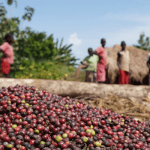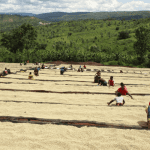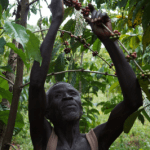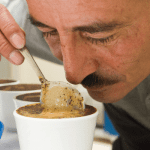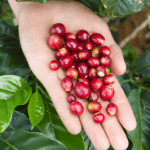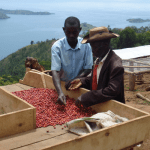Helping Small Fruit Farmers Become Exporters in El Salvador
Just two years ago, Beto Gonzales was almost forced from his land in El Salvador. He and his fellow producers of jocote, a fruit native to Central America, had grown accustomed to receiving subsistence wages for the sale of their crops. Each year, the traditional methods Beto applied to grow his fruit became less and less effective. Difficulties fertilizing, collecting and transporting the fruit regularly cut yields and quality by about 40 percent. And with middlemen setting the prices and determining the payment terms, Beto and other farmers were left with little incentive to invest in implementing better practices.
Barely breaking even, Beto and his neighbors considered selling the farms they had owned for decades. With more and more workers losing their jobs, crime began to rise as the quality of life declined.
But Beto and his associates refused to wilt under difficult conditions. In 2008, he and nine other area jocote producers reached out to TechnoServe for assistance, and were incorporated into a broader “Strengthening the Development and Export of Ethnic Products” program. With support from the Government of El Salvador’s Ministry of Foreign Relations and the US Department of Agriculture, the TechnoServe-led program helps entrepreneurs sell to the Salvadoran migrant market in the United States.
It is estimated that 2.8 million Salvadorans live in the U.S., consuming on average nearly $6,000 worth of ethnic Salvadoran products each year. Jocote, a sweet, acidic fruit that can be grown in soil with marginal agricultural value, is the most exported fruit from El Salvador to Salvadorans living abroad. Capitalizing on this opportunity turned things around for the jocoteros. They began to view their fruit as an opportunity for export and started integrating their operations to pool knowledge and resources, and assure the wellbeing of their workers, environment and products.
TechnoServe advisers helped the farmers to implement agricultural best practices, enabling them to increase the value and marketability of their jocote. Installing latrines on farmers’ plots, for example, reduced the risk of contamination. Using plastic containers in place of wooden baskets for collection and transport drastically reduced damage to crops. Standardizing grading and accounting systems permitted farmers to better sort and track their fruit. Soon, the annual 40 percent in lost yields disappeared.
With these enhancements in place, the producers have begun the process needed to receive the Salvadoran Ministry of Agriculture and Livestock’s official stamp of approval, a designation that would allow the cooperative to receive higher prices for its produce, become even more competitive and meet a key benchmark for exportation.
Now, making nearly $45,000 in annual incremental revenue from their combined 124 acres, TechnoServe’s clients are able to employ nearly 2,000 seasonal workers. Equally important, they are setting a good example for other nearby growers.
“Now, everyone wants to follow in our footsteps, and we believe in the responsibility to guide others who are seeking help,” Beto says. “We have to share everything we have achieved because there is enough for everyone.”



